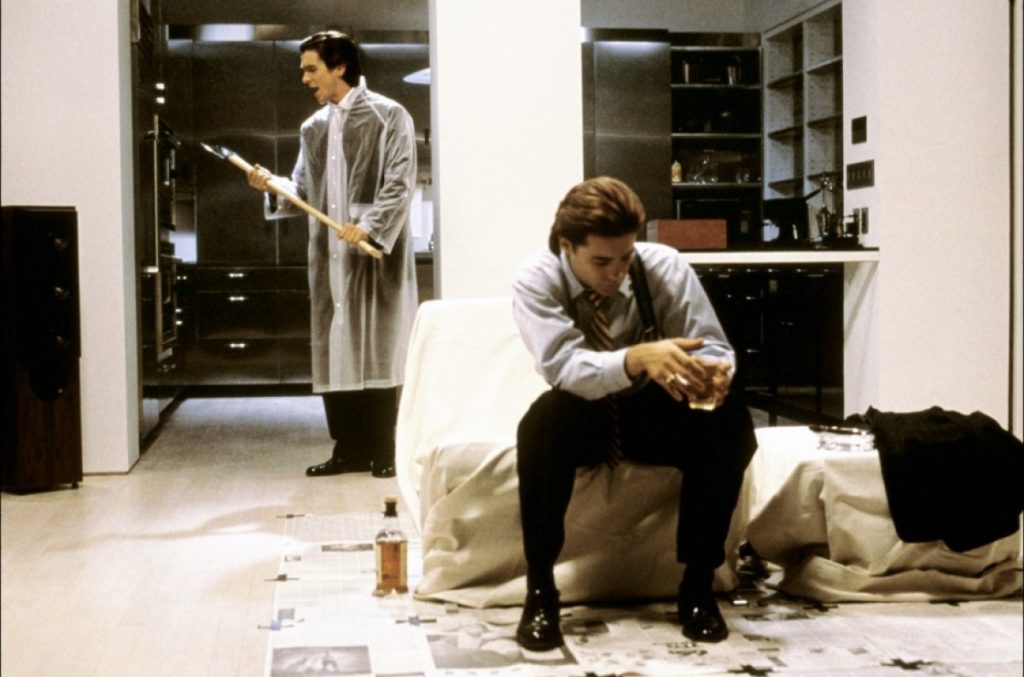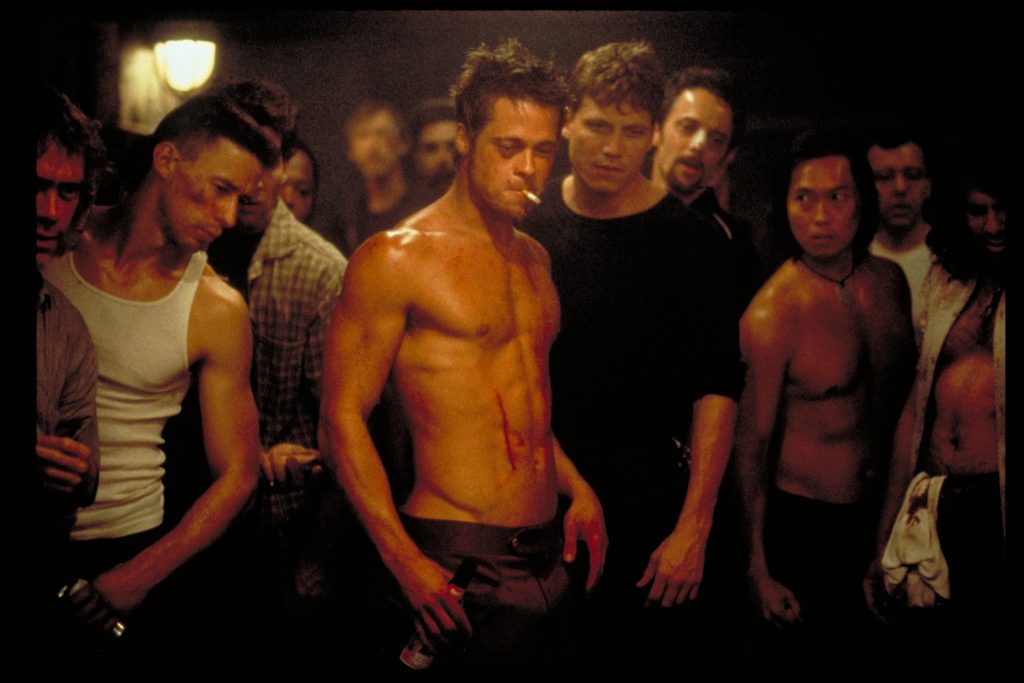
Worth Your Time?: Three movies that illustrate the modern failure of the American Dream
By Nicholas Cervania, October 25 2021—
The American Dream describes one the founding philosophies of the country. In the land of equal opportunity, everyone has the chance to become rich and successful — and therefore happy — but only if they work hard enough. The only limit to your fortune and fulfillment is your own goals and aspirations.
But, with the American Dream being inherently materialistic, consumerism becomes a clear byproduct of this ideology. The American Dream speaks not to family, friendship or camaraderie, but purely to dollars and cents in the capital-concentrated economy.
How does the American Dream hold up today? Does this ideology have a darker side? Is the American Dream broken? Was it even true to begin with? That’s the idea I want to explore in this article with the following films.
American Psycho:

American Psycho is a commentary on the superficial upper-class men of 1980s Wall Street, obsessed with a particular picture of success.
Patrick Bateman (Christian Bale) works as a successful investment banking executive. Every night, however, he falls victim to his psychotic fantasies, committing more violent murders than the night before.
Despite his psychosis and mental illness, Bateman is a man characterized by his material possessions. His apartment, his business cards, his healthcare products and his ability to obtain a reservation at an exclusive restaurant are all defining points of his personality.
With a fragile ego stemming from his consumer-defined identity, Bateman finds himself surrounded by those who are also defined by the products they consume. On the surface, he’s identical to them all, indicated by the number of times his identity is mistaken throughout the film.
In a homogenizing culture set forth by the prospects of the American Dream, what sets Bateman apart is his debilitating psychosis — something that’s partially representative of his unhappiness despite his materialistic success. Despite achieving the success promised by the American Dream, Bateman is unable to obtain the fulfillment promised with it.
Nightcrawler:

An unemployed petty-thief living in L.A., Lou Bloom (Jake Gyllenhall) finds work as an independent videographer, filming footage of accidents and violent crimes to sell, freelance, to local news stations. However, Lou’s desire for success grows increasingly rampant and his methods become increasingly unethical.
While not an outright homicidal psychopath like Bateman in American Psycho, we’re shown that Lou’s mental state is far from stable. Similar to Bateman however, Lou is driven to perform immoral acts to achieve the idea of success perpetuated by the American Dream.
Lou’s constant pursuit of what he passes off as an extraordinary work ethic borders on insanity and the methods he employs for his success are far from ethical. With the exception of the empty, soulless interior he tries to hide, he perfectly embodies the desperate passion for success that self-help books and motivational propaganda pass off as something to strive for.
Lou’s mental state is the result of the perpetuating fallacy of the American Dream. His obsession with it and his success is an all-consuming sickness. This drives his actions and choices, culminating in his sabotage and betrayal of people close to him in favour of his own fortune.
Nightcrawler is a story surrounding the dark side of the American Dream and the lengths someone indoctrinated by its ideology would go to in order to achieve it.
Fight Club:

The protagonist (Edward Norton) of Fight Club begins the movie as the picture of success within the American Dream. With a well-paying job, he’s able to pay for a fully-furnished, high-end apartment to store all of his possessions. As far as consumerism is concerned, he has it all.
However, this materialistic success means nothing. He still feels empty and still suffers from insomnia.
Returning from a business trip, he meets Tyler Durden (Brad Pitt) and comes home to find his apartment and all his belongings destroyed in an explosion. Dejected, he calls and meets Tyler at a bar where Tyler tells him they are the byproduct of a lifestyle obsession led by consumerism. Together, they form the Fight Club and eventually Tyler forms an organization known as Project Mayhem.
Project Mayhem is an anti-materialist, anti-corporate organization. Through increasingly anarchic methods, they aim to free society from the shackles of materialism brought on by the ideals of the American Dream.
American Psycho presents the idea that our belongings can define us and Nightcrawler shows us the radicalization of a flawed idea of success within a material society. Fight Club, however, demonstrates the theory that the American Dream is a lie — one that has brainwashed us into being possessed by our possessions.
